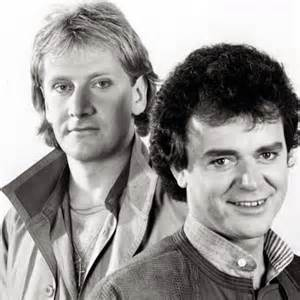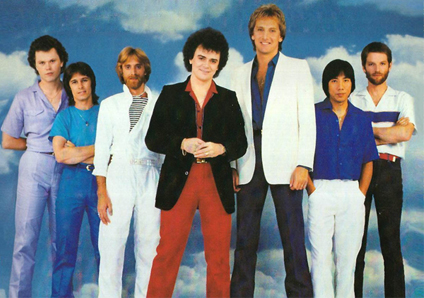Last week, an odd confluence occurred that got me to thinkin’ and, as a result, got me inspired. Within a couple days of one another, several of my friends published work (most of it on this here site) that hit me where I live—
- Dave Lifton posted a, well, Liftonesque (that’s a compliment) takedown of a piece by Jody Rosen in Vulture called ”In Defense of Schlock Music: Why Journey, Billy Joel, and Lionel Richie Are Better than You Think.” Lifton quoted our poobah Jeff Giles’ tweet about the article, which pretty much said it all: ”Eagerly awaiting the day when we collectively move past the High-Minded Defense of Low Culture essay.” Rosen’s condescending. 10,000-word ”defense” of 150 sentimental, bombastic, and/or wimpy but great songs was a prÁ©cis of pomposity, a smug attempt to ”defend” the uncool by patronizing it. Lifton effectively refuted Rosen and, as a result, started several excellent discussions on Facebook, and … well, like I said, it got me thinkin’.
- Allison Johnelle Boron posted a wonderful review of a recent show by the surviving Monkees. Allison’s been a Monkees fan since she was a kid, and brought a true fan’s emotional connection and depth of knowledge to the piece, but did so in a way that is accessible even to the casual listener.
- Both Will Harris (on Rhino.com) and Dw. Dunphy (in Popdose) published interviews with Debbie Gibson and—like Allison brought to the Monkees—used their intensity and learned perspective as fans to the proceedings, with terrific results. I don’t know where Gibson—a crush-worthy Eighties pop princess if ever there wuz one—fits into the present pop culture landscape, but Will and Dunphy treated her with respect, and got some insightful and fun responses from her.
- Ken Shane celebrated his birthday this year by posting the two-hundred-and-by-God-eighth column in his always-cool ”Soul Serenade” series, in which he chronicles ”the music that has inspired me since I was a kid in the ’60s.”
There’s passion present in each one of these articles, a kind of passion that I’ve sorta been lacking of late. I admit, I get kinda caught up in the day-to-day requirements of earning a living and paying for shit and all, and quite often I forget to do things or read things or listen to things that excite my passions. These five pieces, individually and in toto, reminded me of something I’ve lost recently, and I’m grateful for that.
I read the Rosen piece when it was published, and dismissed it without really thinking much of it. It struck me as a kind of indulgence in hipster pleasure-shaming that’s common on Ye Olde Interwebs, even as he simultaneously claims to embrace those very same pleasures. Ultimately, though, by writing a condescending ”defense” of the same songs he professes to take pleasure from, Rosen, knowingly or not, weakens the argument he’s trying to make; he also comes off as a bit of a tool.
I’m on record as one who believes there should be no such thing as a guilty pleasure (which I wrote last year, in a column on Juice Newton). Like what you like; embrace it; like it for the good feeling it brings out of you, in sheer defiance of our life and times, which for the most part seem to be intent on dragging us down. I’ve devoted space in this column to critics’ whipping boys and girls like Mizz Newton, the Bee Gees, Kenny Loggins, Dan Fogelberg, Billy Joel, and Yes, as well as to critics’ darlings like the Beatles, Bruce Springsteen, Bob Dylan, and REM. I love em all (well, maybe not Fogelberg. Nether Lands is great, though). I also love power ballads; spent three years writing about em, and continue to write about em to this day (though I haven’t published any recent pieces … yet).
These are some of the the sounds on which my lifelong obsession with music is founded, like Allison and the Monkees; like Ken and Motown. These are sounds that excited my interests, caught my ear, and stayed rooted in there, like Debbie Gibson to Dunphy and Will. We like what we like, love what we love, and quite often it’s the things we latch onto earliest that stay with us forever.
And I love Air Supply.
There. I said it. I love Air Supply. Love them without shame or guilt or any worry about not being hip or credible as a critic or writer or whatever. I’m too old for that shit. Don’t need to write 10,000 words providing high-minded, critically acceptable reasons for why liking them is okay. Air Supply’s music makes me happy—has since I was a wee lad, and continues to do so today.
Disagree with me if you wish—and some of you doubtless will. That’s fine. If thou hearest not the clarion call emanating from yon Valentine’s Day-themed hot air balloon (no, not that one—the other one, over yon mountains) I doth understand, and feel sorry for thee. Still, I ask your indulgence, as I tell you about a boy, some baseball cards, a couple ballad-singin’ Australians, and just how long a few songs can stay lodged in one’s head and heart.
I came up in the Eighties, the earliest years of which were something of a hangover from the Seventies, when ”You Light Up My Life” and ”Tonight’s the Night” and Barry Manilow and Olivia Newton-John were radio staples and major players on the Billboard charts. Up until 1983 or so—when Duran Duran’s Rio reached its full cultural impact, and their early MTV nouveau wavo brethren and sisteren cracked the charts and stayed there—it was for all intents and purposes still the Seventies, at least on the popular music front. Look at the top-selling singles from 1981, and you’ll see what I mean—Kim Carnes, Diana Ross and Lionel Richie, Kenny Rogers, Sheena Easton, Mizz Newton, Neil Diamond, and so on and so forth. Uber-sensitive, lighter than air, middle-of-the-road, critically reviled, squishy pop music.
I loved it. Every note of it.
 Air Supply—an Australian import comprised of two Jesus Christ Superstar exiles and their merry bandmates—was perfectly suited for this period. The band peddled a brand of MOR that appealed to the young kids feeling their first crushes, the teenagers on their fourth or fifth crushes, and their parents, for whom crushes were a cobwebby memory. They had the full package: two singers—the high-voiced one (Russell Hitchcock) and the husky-voiced one who wrote most of the songs (Graham Russell)—backed by musicians who sounded like session players, strings, chick background singers, really all manner of Seventies-style adult contemporary accoutrements. Their songs were sentimental, with the word love in every third verse and every other song title. It was all so earnest, earnestness on top of earnestness, earnestness times ten.
Air Supply—an Australian import comprised of two Jesus Christ Superstar exiles and their merry bandmates—was perfectly suited for this period. The band peddled a brand of MOR that appealed to the young kids feeling their first crushes, the teenagers on their fourth or fifth crushes, and their parents, for whom crushes were a cobwebby memory. They had the full package: two singers—the high-voiced one (Russell Hitchcock) and the husky-voiced one who wrote most of the songs (Graham Russell)—backed by musicians who sounded like session players, strings, chick background singers, really all manner of Seventies-style adult contemporary accoutrements. Their songs were sentimental, with the word love in every third verse and every other song title. It was all so earnest, earnestness on top of earnestness, earnestness times ten.
And they were huge. Imagine the word huge in the last sentence, in 96-point type. That’s how huge. The first seven songs they sent out to radio in the U.S. wound up not just in the Top 40, but the Top FIVE. Pushed along by Svengali/crypt keeper Clive Davis, they were an unstoppable radio and chart force in 1980 and 1981, before trailing off a bit in ’82 and scoring one last major hit in 1983. It was a fine run—by 1983, the Seventies were just ending, and the brand of MOR weeper in which Air Supply trafficked was on its descent.
For my eleventh birthday—1981, if you want to do the math—I received two gifts from my parents: a box of Topps baseball cards and Air Supply’s third U.S. release, The One that You Love. The baseball cards have not aged well (no decent rookies in 1980, though my beloved Phillies won the World Series that year and put three players on the All-Star team), but the Air Supply record still gets spins in my house. That’s 33 years of playing, each spin delivering a payload of pleasure undiminished by the years.
 Each time through it, I remember every note, every word, every nuance. The way the harmonies in the chorus of ”Don’t Turn Me Away” lock together, making Russell’s deep voice sound even deeper. The way the orchestration in ”Here I Am”—all the strings and flugelhorns and shit—make the choruses sound like they’re floating. The way the high harmony on the lines ”I’ve done everything I can to ease the pain / But only you can stop the rain” (Russell again, using his falsetto) sounds like crying. The way the strings in ”I Want to Give It All” sound woody, and almost (but not quite) cover up a flubbed guitar note toward the end. The way the swirl of synthesizer wave effects and clean guitar arpeggios open ”Sweet Dreams”—if not Floydian, then definitely Alan Parsons Projectian. The way the fadeout from ”Keeping the Love Alive” blends into silence, silence that is dissipated by those first quiet piano chords that begin ”The One that You Love”—an exquisite, unintentional tension, perfectly broken. The way ”The One that You Love” builds and builds into the modulated crescendo (naturally, David Foster co-produced it), with Hitchcock singing at the top of his considerably high register, trying to crack the sun open with the sheer power of his voice.
Each time through it, I remember every note, every word, every nuance. The way the harmonies in the chorus of ”Don’t Turn Me Away” lock together, making Russell’s deep voice sound even deeper. The way the orchestration in ”Here I Am”—all the strings and flugelhorns and shit—make the choruses sound like they’re floating. The way the high harmony on the lines ”I’ve done everything I can to ease the pain / But only you can stop the rain” (Russell again, using his falsetto) sounds like crying. The way the strings in ”I Want to Give It All” sound woody, and almost (but not quite) cover up a flubbed guitar note toward the end. The way the swirl of synthesizer wave effects and clean guitar arpeggios open ”Sweet Dreams”—if not Floydian, then definitely Alan Parsons Projectian. The way the fadeout from ”Keeping the Love Alive” blends into silence, silence that is dissipated by those first quiet piano chords that begin ”The One that You Love”—an exquisite, unintentional tension, perfectly broken. The way ”The One that You Love” builds and builds into the modulated crescendo (naturally, David Foster co-produced it), with Hitchcock singing at the top of his considerably high register, trying to crack the sun open with the sheer power of his voice.
For a time, they were my favorite band, which resulted in a little good-natured ribbing from my cousins Chuck and Dwight—Springsteen and southern rock aficionados, both of them—though Chuck once gave me a cassette containing a soundboard recording of a show Air Supply played at his college. (Yes, I had an Air Supply bootleg. Played the shit out of that tape, too, until the thing warped from overuse.)
 I lost track of the band for a while—I think they split up for a bit in the late Eighties, before reconvening in the early Nineties—but would take out one of their records or CDs at least a couple times in any given year. They released an album in 2005 called The Singer and the Song, a voice-and-guitar record that proved even the most heavily produced and orchestrated of their hits were, at heart, just good songs, songs that worked well even in a stripped-back, unplugged setting. It sounded so good, so fresh to these ears, it was like discovering their music all over again.
I lost track of the band for a while—I think they split up for a bit in the late Eighties, before reconvening in the early Nineties—but would take out one of their records or CDs at least a couple times in any given year. They released an album in 2005 called The Singer and the Song, a voice-and-guitar record that proved even the most heavily produced and orchestrated of their hits were, at heart, just good songs, songs that worked well even in a stripped-back, unplugged setting. It sounded so good, so fresh to these ears, it was like discovering their music all over again.
And sometimes, when my mood is right and the time is right and I hear the right song, I can once again channel that 11-year-old kid, hooked on the radio, enjoying the sounds of the Seventies overlapping into the Eighties, not worrying if he was supposed to like the songs he was hearing, just liking them, because they moved him. Those moments were when that kid was happiest. They might be moments when this middle-aged man is happiest, as well. In those moments, there’s no need for defense or dissertation; the only need is to sink into those sounds, and maybe nudge the volume up a little higher.





Comments